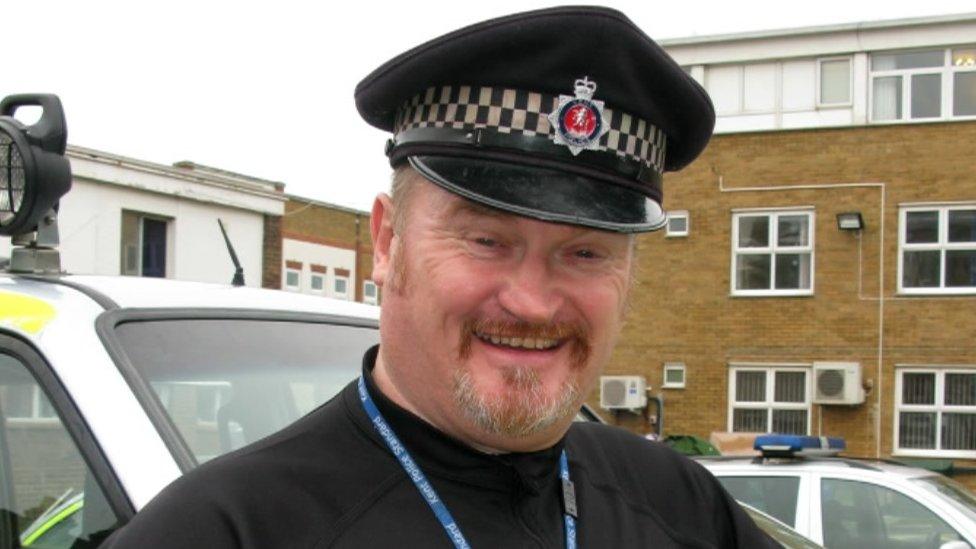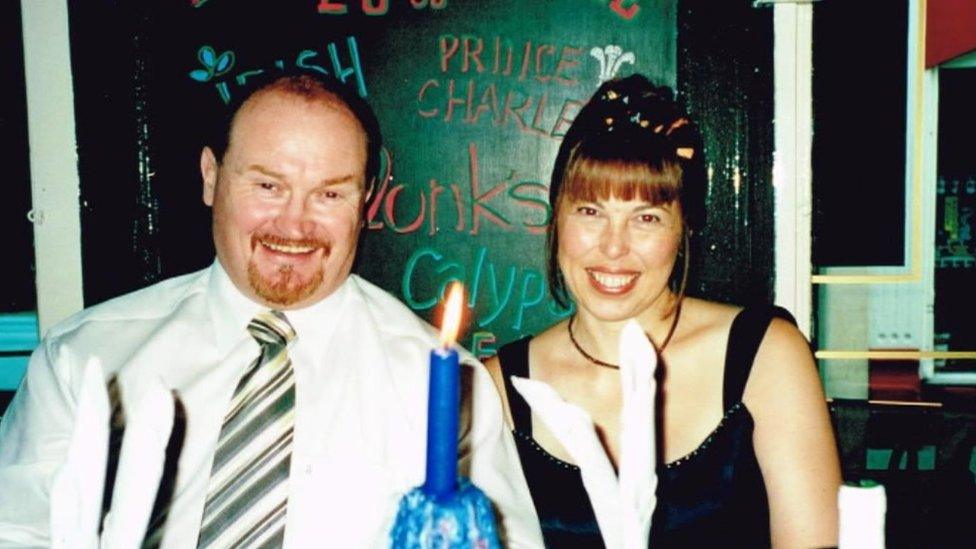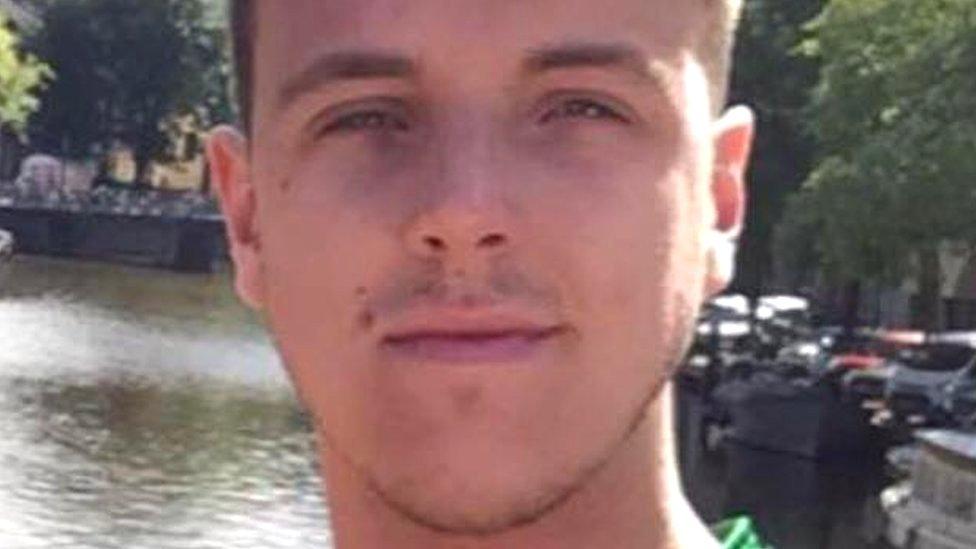Asthma attack death came after 999 software delay
- Published

Retired policeman Stephen Thurman-Newell was 62 when he died on 16 September 2016
A retired policeman died from an asthma attack after it took 17 minutes to dispatch an ambulance, an inquest heard.
Stephen Thurman-Newell, 62, called 999 to complain of breathing difficulties in September 2016.
The system in use at the time placed his call in the second-highest emergency category, an inquest heard.
South Western Ambulance Service (SWASFT) has since changed its triage software.
The inquest heard Mr Thurman-Newell, from Wincanton, called 999 just before 21:15 GMT on 16 September 2016.
'Totally unexpected'
Despite the arrival of paramedics, the court was told, Mr Thurman-Newell was pronounced dead just over an hour later at 22:30 GMT.
Senior coroner Tony Williams called for clarification on the way asthma attacks are handled by emergency services following Mr Thurman-Newell's death.
At the time of the death, he said, SWASFT "were operating a software triage package known as NHS Pathway", but had since moved to a different package, which "should result in a top priority response".
He added SWASFT had "agreed to make an inquiry, on my behalf, to establish if any changes have been made to the NHS Pathways package in respect of asthma".
"And, if not, I agreed I would write to NHS Digital to bring the circumstances of Stephen Thurman-Newell's death to their attention," he said.

Susan Thurman-Newell said her "mantra" was "Stephen would not want what happened to him, to happen to anybody else"
Widow Susan Thurman-Newell said her husband's death was "totally unexpected".
She said: "The first call handler took him through a very, very long process.
"Even someone with the mildest form of asthma has to understand how dangerous it can be. It caught my husband out and he carried his inhaler with him everywhere.
"Because it has taken two years to get to inquest, the trust themselves have had to make fundamental changes."
'Stephen's tragedy'
Dr Andy Smith, from SWASFT, said: "The way we prioritise 999 calls is through a series of telephone-based questions and at the time of Stephen's call, the category that his call fell into was the second highest.
He said the changes were not necessarily "a direct result" of the death as they were "already being planned at the time Stephen's tragedy happened".
"But Stephen's case has certainly fed in to helping make sure that specifically people who have asthma, and who are struggling to breathe, in the way that Stephen was at that time, will now reach the category one disposition," he said.
Mr Williams recorded a narrative verdict.
- Published31 August 2018

- Published23 January 2018
